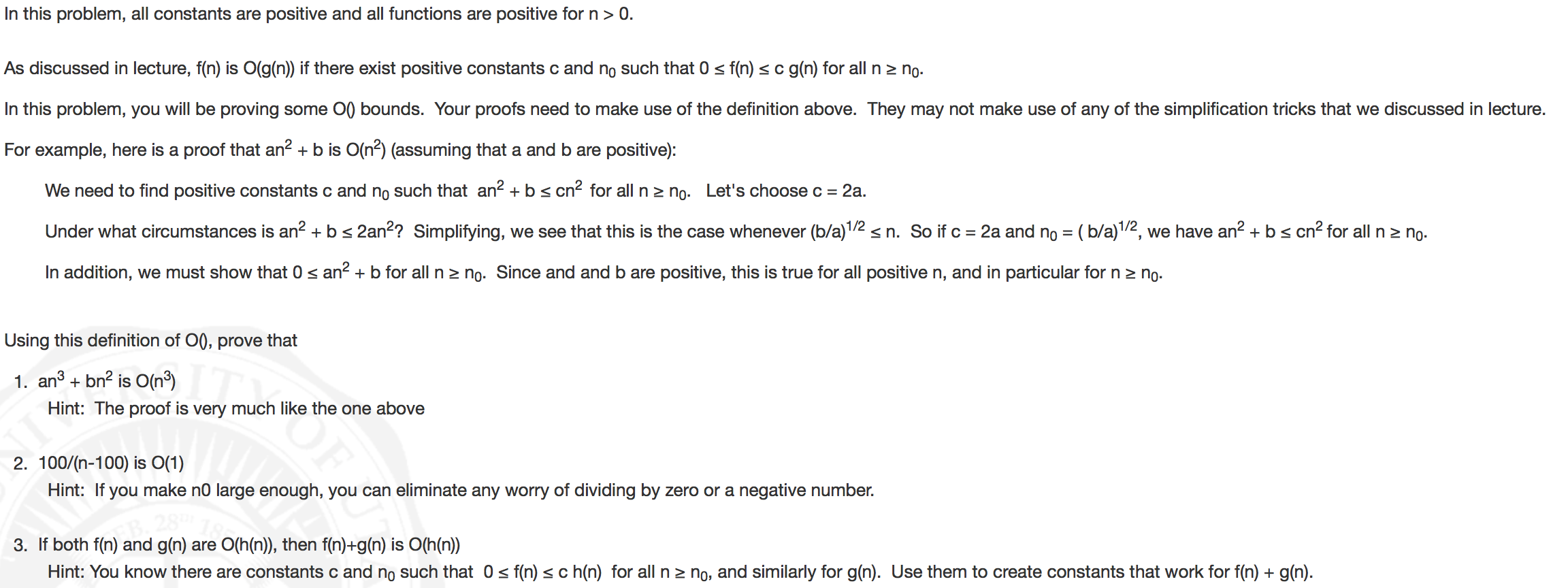Question: In this problem, all constants are positive and all functions are positive for n > 0. As discussed in lecture, f(n) is O(g(n)) if there

In this problem, all constants are positive and all functions are positive for n > 0. As discussed in lecture, f(n) is O(g(n)) if there exist positive constants c and n_0 such that 0 n_0. In this problem, you will be proving some O() bounds. Your proofs need to make use of the definition above. They may not make use of any of the simplification tricks that we discussed in lecture. For example, here is a proof that an^2 + b is O(n^2) (assuming that a and b are positive): We need to find positive constants c and no such that an^2 + b n_0- Let's choose c = 2a. Under what circumstances is an^2 + b n_0. In addition, we must show that 0 n_0. Since and b are positive, this is true for all positive n, and in particular for n > n_0. Using this definition of O(), prove that an^3 + bn^2 is O(n^3) 100/(n-100) is O(1) If both f(n) and g(n) are O(h(n)), then f(n)+g(n) is O(h(n))
Step by Step Solution
There are 3 Steps involved in it

Get step-by-step solutions from verified subject matter experts


